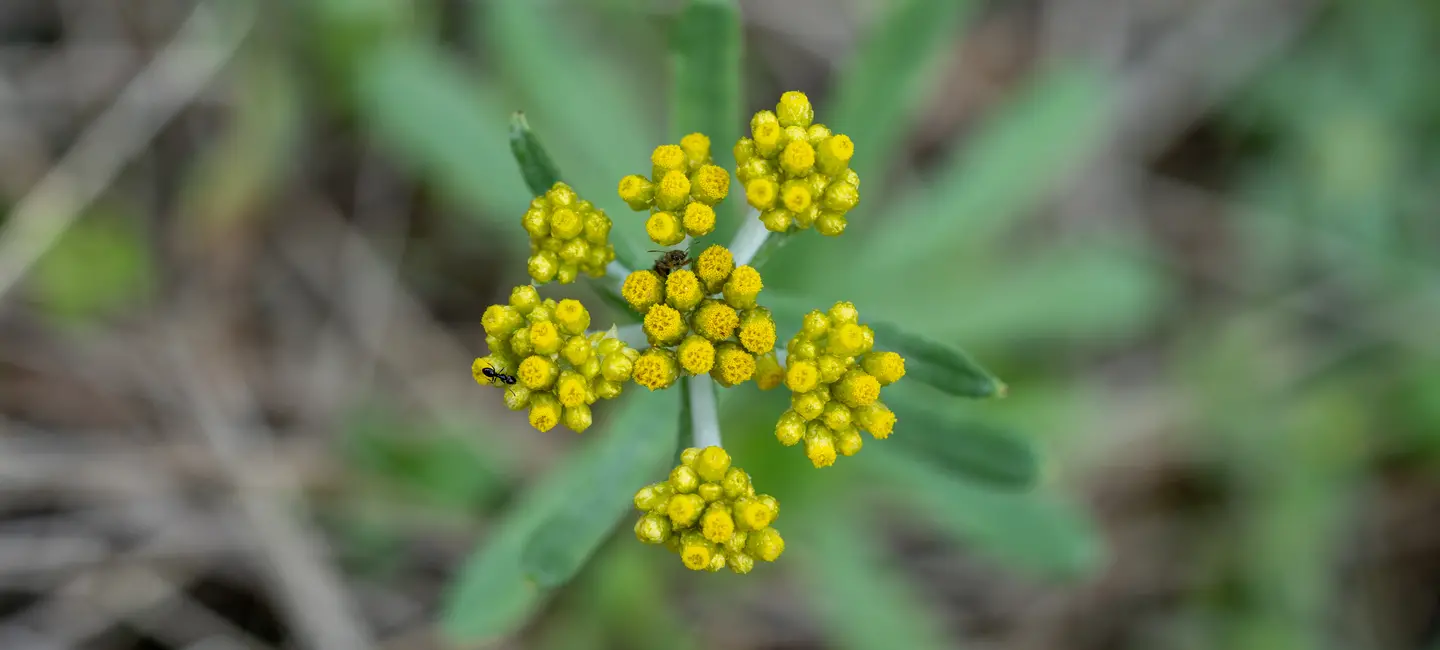
Cudweed is an herb. The parts that grow above the ground are used to make medicine.
People use cudweed for conditions such as high blood pressure, stomach ulcers, diarrhea, gut infections, and many others, but there is no good scientific evidence to support these uses.
Don't confuse cudweed (Gnaphalium uliginosum) with cat's foot (Antennaria dioica), which is also known as cudweed. Also, don't confuse cudweed (Gnaphalium uliginosum) with Pilosella officinarum; both are sometimes called mouse ear.
Is It Effective?
NatMed Pro rates effectiveness based on scientific evidence according to the following scale: Effective, Likely Effective, Possibly Effective, Possibly Ineffective, Likely Ineffective, Ineffective, and Insufficient Evidence to Rate.
- Aphrodisiac.
- Blood clots.
- Constipation or hemorrhoids, when used as an enema.
- Cough, tonsillitis.
- Depression, sleep problems, anxiety.
- Diarrhea, gut infections.
- Diseases of the mouth or throat, when used as a gargle or rinse.
- High blood pressure.
- Stomach ulcers.
- Wounds, ulcers, burns, or head lice, when used topically.
More evidence is needed to rate the effectiveness of cudweed for these uses.
Is it Safe?
There isn't enough information to know how cudweed might work.
It is not known if cudweed is safe or what the potential side effects might be.
Special Precautions & Warnings:
Pregnancy and breast-feeding: Not enough is known about the use of cudweed during pregnancy and breast-feeding. Stay on the safe side and avoid use.
Allergy to ragweed and related plants: Cudweed may cause an allergic reaction in people who are allergic to the Asteraceae/Compositae plant family. Members of this family include ragweed, chrysanthemums, marigolds, daisies, and many others. If you have allergies, be sure to check with your healthcare provider before taking cudweed.
Diabetes: Cudweed might lower blood sugar. There is a chance that cudweed might interfere with blood sugar control and might lower blood sugar too much. If you have diabetes and use cudweed, monitor your blood sugar carefully.
Medications for diabetes (Antidiabetes drugs)
Interaction Rating=Moderate Be cautious with this combination.
Cudweed might lower blood sugar. Diabetes medications are also used to lower blood sugar. Taking cudweed along with diabetes medications might cause blood sugar to go too low. Monitor your blood sugar closely. The dose of your diabetes medication might need to be changed.
Some medications used for diabetes include glimepiride (Amaryl), glyburide (DiaBeta, Glynase PresTab, Micronase), insulin, pioglitazone (Actos), rosiglitazone (Avandia), chlorpropamide (Diabinese), glipizide (Glucotrol), tolbutamide (Orinase), and others.
Herbs and supplements that might lower blood sugar: Cudweed might lower blood sugar. Using it with other herbs or supplements that also have this effect might lower blood sugar too much. Other herbs and supplements that might lower blood sugar include alpha-lipoic acid, bitter melon, chromium, devil's claw, fenugreek, garlic, guar gum, horse chestnut, Panax ginseng, psyllium, Siberian ginseng, and others. Don't use cudweed with any of these.
There are no known interactions with foods.
The appropriate dose of cudweed depends on several factors such as the user's age, health, and several other conditions. At this time there is not enough scientific information to determine an appropriate range of doses for cudweed. Keep in mind that natural products are not always necessarily safe and dosages can be important. Be sure to follow relevant directions on product labels and consult your pharmacist or physician or other healthcare professional before using.
Brown Cudweed, Chaffweed, Cotton Dawes, Cotton Weed, Cotonnière des Fanges, Dwarf Cotton, Dysentery Weed, Everlasting, Filaginella uliginosa, Gnaphale, Gnaphale des Fanges, Gnaphale des Marais, Gnaphale des Mares, Gnaphale des Vases, Gnaphalium uliginosum, Immortelle des Vases, Live Everlasting, Low Cudweed, Marsh Cudweed, Mountain Everlasting, Mouse Ear, Petty Cotton, Sumpf-Ruhrkraut, Sumpnoppa, Wartwort.
Information on this website is for informational use only and is not intended to replace professional medical advice, diagnosis, or treatment. While evidence-based, it is not guaranteed to be error-free and is not intended to meet any particular user’s needs or requirements or to cover all possible uses, safety concerns, interactions, outcomes, or adverse effects. Always check with your doctor or other medical professional before making healthcare decisions (including taking any medication) and do not delay or disregard seeking medical advice or treatment based on any information displayed on this website.
© TRC Healthcare 2024. All rights reserved. Use and/or distribution is permitted only pursuant to a valid license or other permission from TRC Healthcare.
